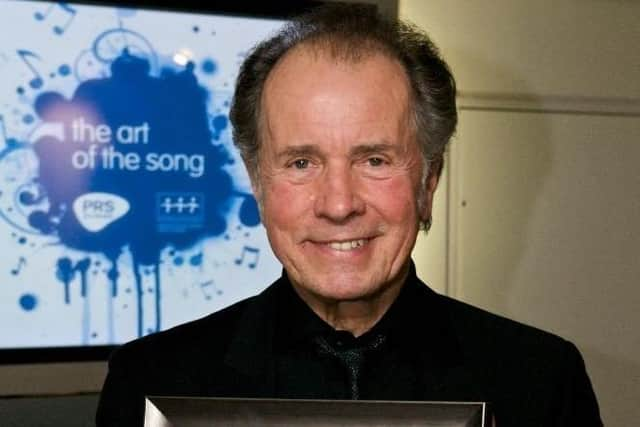Music and sport fans split over ban of iconic Tom Jones song written by Wigan's Barry Mason
and live on Freeview channel 276
The prolific musician and lyricist – who died two years ago - penned many hits, but few more famous than Delilah which became a Tom Jones calling card in 1968.
It has been a staple chant of many a sport stadium since. But now it has been banned by the Welsh Rugby Union because of its tale of domestic violence and murder.
Advertisement
Hide AdAdvertisement
Hide AdThe governing body has recently been embroiled in sexism and discrimination allegations and so the song’s lyrics, which include reference to a two-timing woman being killed by her jealous partner, sit particularly uncomfortably.


The WRU actually took Delilah off its half-time entertainment and music playlist during test matches in 2015 and guest choirs have since been asked not to perform it.
But now it has barred it officially from being sung or played at the Principality Stadium.
A stadium spokesman said that the WRU condemns domestic violence of any kind and said that there had been earlier talks about censoring the song.


But the ban has divided opinion.
Advertisement
Hide AdAdvertisement
Hide AdWelsh Conservative Sports Minister Tom Giffard said: “The decision is a wrongheaded one that amounts to simple virtue signalling, designed to ease the pressure the WRU are currently under. Calls to ban the song span at least the last decade, yet the WRU have chosen now to act.
“What people have been calling for is institutional change, improved working practices and a better complaints process for the WRU, but instead they are choosing to ban a much loved Tom Jones song. This action will solve nothing.”
Rugby fan Lorna Hughes said: “When you actually sit down and listen to the words they are pretty grim at the end.
"The song was written in a different age. Dressing up domestic violence in a song romanticises abuse.
Advertisement
Hide AdAdvertisement
Hide Ad"There are plenty of other good songs people can sing instead.”
Mason, who was born on Spencer Road in Whitley and raised in Coppull, Chorley, explained that the song’s inspiration came from heartbreak he suffered as a teen.
When he was just 15, he met a girl in Blackpool. He lived there, she was on holiday. He fell head over heels in love. But at the end of her holiday she revealed that it was over and that she had a boyfriend at home.
Her name was Delia. “I was shattered,” Mason recalled many years later. “I became sick with jealousy.”
Advertisement
Hide AdAdvertisement
Hide AdFast-forward almost 20 years and Mason was making a mark for himself as a songwriter, following abortive attempts to become an actor and a pop star.
Tom Jones had enjoyed a No 1 hit with It’s Not Unusual, written by Mason’s friends Gordon Mills and Les Reed. Now Jones needed more big songs to match his personality and Mason suddenly remembered his holiday fling and the pain he felt when his romantic hopes were so cruelly dashed.
Inspired also by Bizet’s opera Carmen and the Frankie Laine song Jezebel, he wrote a song of passion, jealousy and ultimately murder. “Why, why, why Delia” did not quite work, so Delia became Delilah.
Mason wrote the lyrics, Reed the tune, Jones had another huge hit, reaching No 2 in the singles chart in 1968, and Welsh rugby fans had a new anthem – until detractors suggested it encouraged domestic abuse.
The Sensational Alex Harvey Band also had a Top Ten hit with Delilah, accentuating the theatre and melodrama of lines like “I felt the knife in my hand and she laughed no more” and reaching No 7 in 1975.
Welshman Sir Tom himself has so far remained silent on the subject of the WRU ban.
